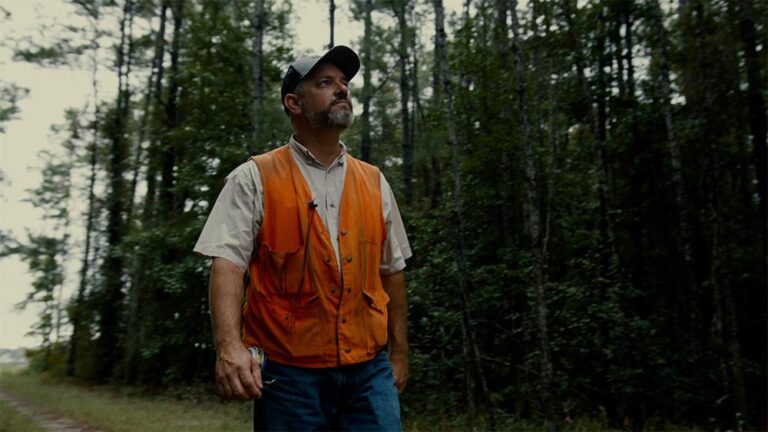issued 04/19/24
Submitted by Rayonnier
Originally published on Rayonier.com
A career in forestry is a unique combination of working outdoors and contributing to environmental sustainability. This article delves into the role of a timber marketing manager, its importance in forestry, and the path to becoming a part of this dynamic field.
What is the role of a timber marketing manager?
Timber marketing managers (we call them TMMs) sell timber to sawmills, wood pulp companies, log exporters, and other buyers for companies like Rayonnier. TMM works to extract the highest possible value from the trees we have invested in and grown for decades.
Broadly speaking, tasks include:
- Develop and execute strategies for timber sales.
- Evaluate the quality and quantity of wood resources.
- Understand market demands and trends.
- Negotiating contracts with buyers.
- Ensure harvesting methods are in line with sustainable forestry principles.
The Timber Marketing Manager acts as a bridge between forestry management and the market, aiming to maximize profitability while promoting responsible resource management.
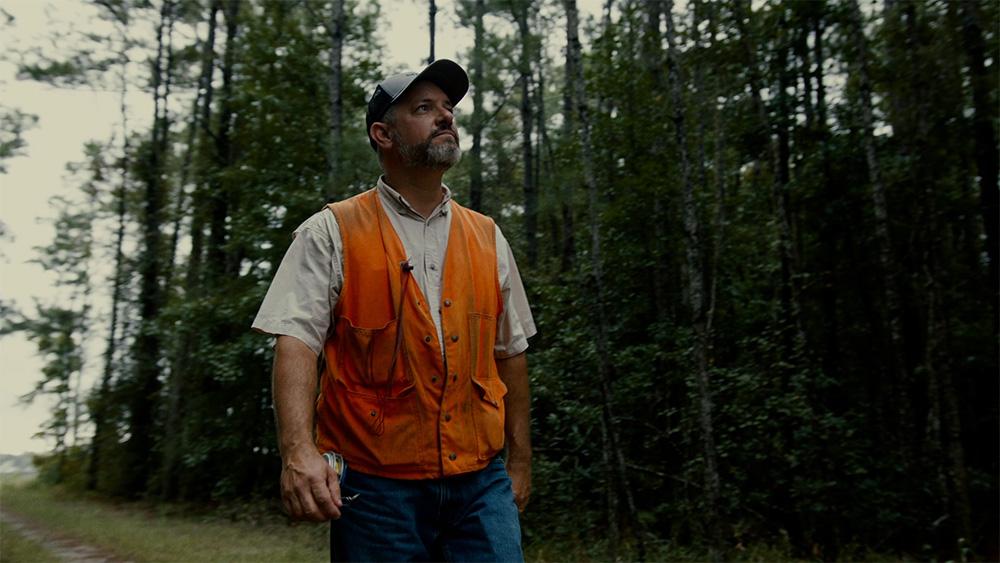
The importance of timber marketing managers in forestry
The strategic decisions and adaptability of timber marketing managers contribute significantly to the overall health of the timber market.
Adapting to changing market dynamics is fundamental to this role. TMM demonstrates its resilience and strategic foresight by navigating difficult markets, overcoming obstacles, and strategically positioning its wood products to succeed in dynamic environments.
“Once Rayonier harvests the timber, it has to sell the timber regardless of market conditions,” says Kevin Pilemalm, senior timber marketing manager, Olympic Peninsula, Washington.
Many factors affect timber sales, including the overall economic climate, weather conditions that affect logging activities, and local production costs. These factors are constantly in flux and can impact costs and logistics. Our TMM adapts to these changes and brings our forest products to market.
In addition to this mental calculation, TMM manages long-standing relationships with loggers and buyers in local communities, ensuring stable and productive business partnerships.
Kevin and the other TMMs acknowledge that this is a difficult role, but they also enjoy the challenge.
“It’s like a jigsaw puzzle,” says Casey Lacasse, one of our timber marketing managers based in Northeast Florida. “All of these elements must come together for successful sales.”
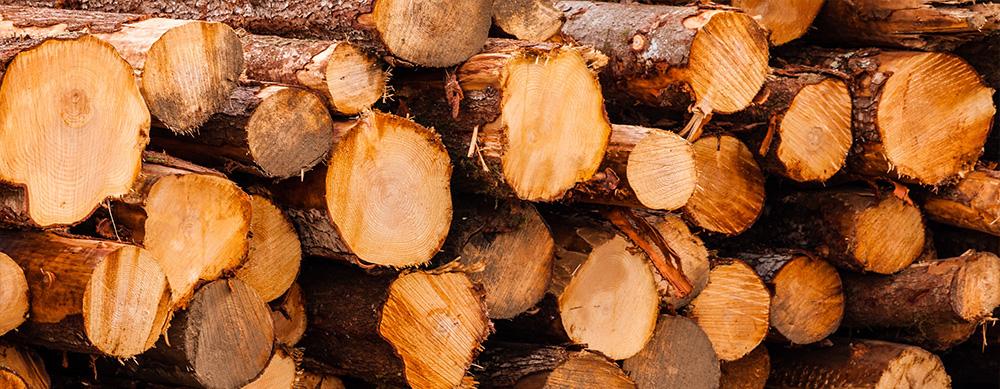
How much is standing wood worth?
The value of wood is determined by many factors. When determining value, timber marketing managers evaluate a stand's species composition, age, size, and overall health.
“Selling wood requires a deep understanding of the value of wood and what provides that value,” says Casey.
Many of our TMMs have been in the forestry industry for decades and understand the factors that influence the value of timber, such as tree species.
At Rayonnier, we grow several different species. In the southern United States, pines such as loblolly, slash, and longleaf are grown, and they take 20 to 25 years to mature. In Washington and Oregon, hemlock, fir, and hardwood trees take longer to grow, sometimes over 40 years.
“The Pacific Northwest grows cedars and other hardwoods,” Kevin says. “Some of our most valuable trees are export logs, which we sell to local facilities for shipment overseas.”
TMM leads a team of forestry personnel who evaluate each stand and determine the price. In addition to tree species, these forest managers also analyze other factors that affect value, such as height, diameter, straightness, and quality.
Forest managers record the specifications of each stand, and TMM uses this data to find suitable buyers.
TMMs often negotiate directly with prospective buyers, especially if they know of a particular buyer's needs. They may also publish data and use a bidding system where buyers bid on timber.
By understanding these factors, timber marketing managers can ensure they maximize the value of their timber.
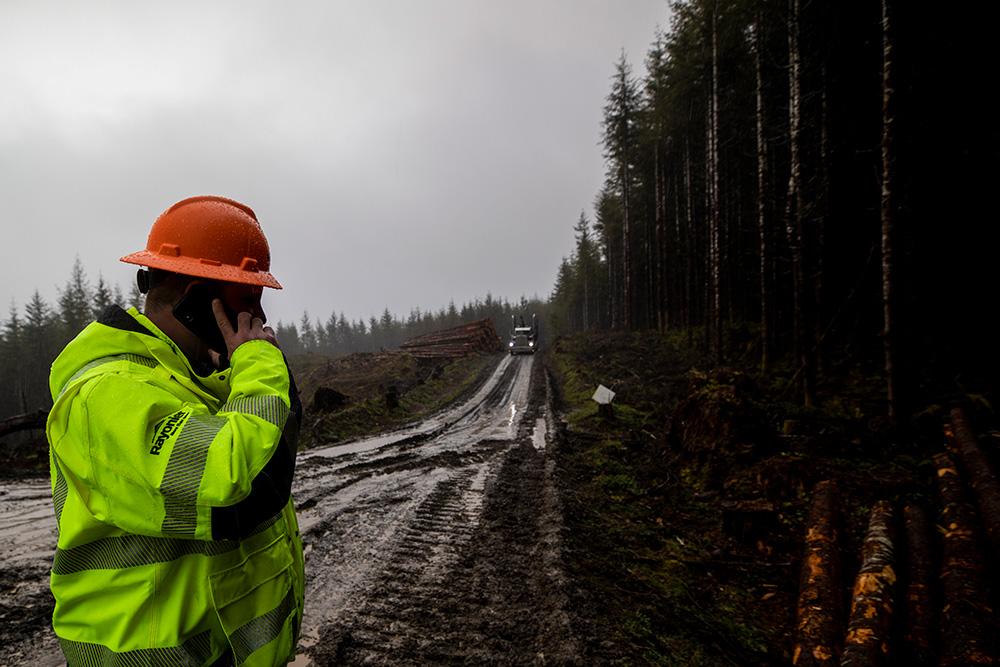
The value of relationship management in timber sales
For timber marketing managers, building strong relationships is of paramount importance. TMM uses effective communication and negotiation to build trust and secure long-term partnerships with buyers, forestry teams, logging contractors, and other stakeholders in the wood product supply chain.
While it is important for TMMs to understand the value of timber and stay on top of trends in the log market, timber sales are not determined by a simple mathematical equation.
“You don't always get logs at the best price,” says Ian Thompson, another senior timber marketing manager on the Pacific Northwest team. “We build long-term relationships with our customers. We’re not going to pull the wood out of the factory.”
Ian works with around 12 regular customers, many of whom are local mills with a steady demand for our forest products.
“Everyone is trying to make a profit and we are all working together,” he says. “We have to survive market downturns and grow when markets are strong. It's about nurturing those relationships and keeping them healthy.”
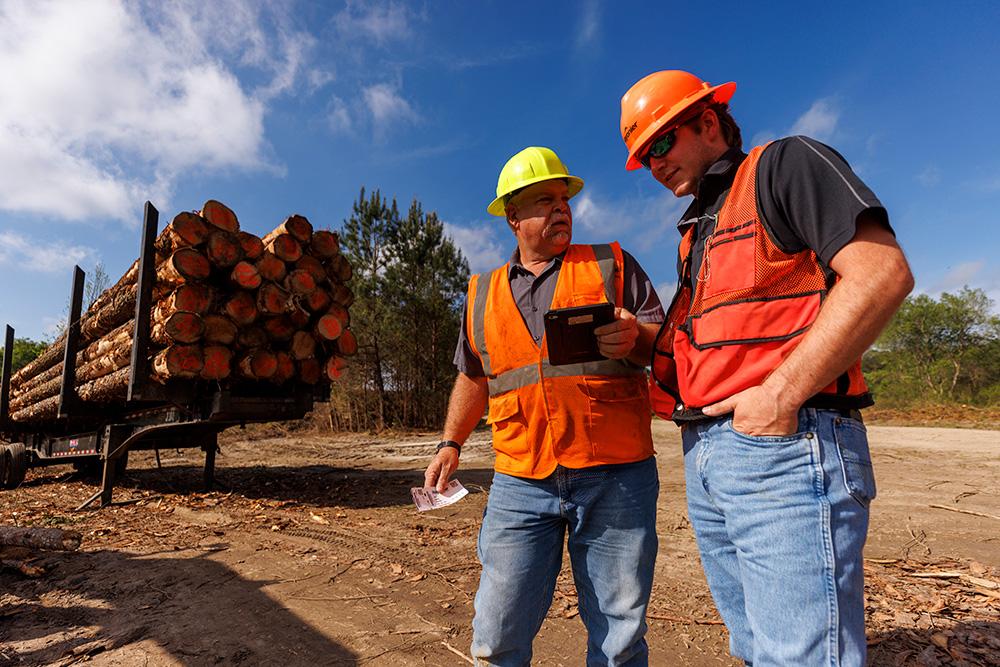
Hire the right logger to harvest the wood
Our TMM also employs and coordinates local loggers and trucking fleets to harvest and deliver our trees to our buyers. Building healthy relationships with these companies is equally important to the overall success of your timber sales.
TMM considers several factors when deciding which contractors to work with. Again, the answer is not simply that the best bid wins the contract.
“Productivity isn’t number one,” Ian says. “First and foremost is safety. Second is regulatory compliance and a commitment to sustainable forestry. And second is productivity. We want to increase productivity to the extent that is feasible and reasonable.” At the end of the day, it's important to hire a good contractor who understands the rules.
Understanding the impact of timber marketing managers
Timber marketing managers play a key role in balancing economic objectives and environmental sustainability.
They help oversee harvesting practices that minimize ecological impact and ensure compliance with certification standards, such as Sustainable Foresty Initiative® certification. Compliance with sustainability standards is critical at every stage of a forest's life cycle. Go behind the scenes of recent sustainable forestry certification audits and learn more about how forestry companies prove they are sustainable.
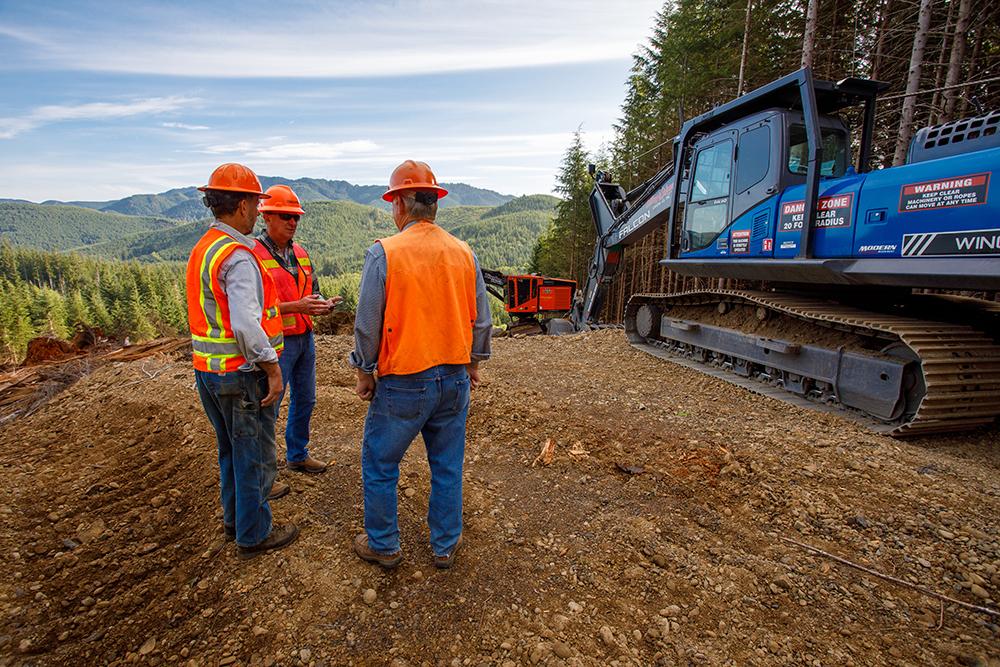
How do I become a timber marketer?
Becoming a Timber Marketing Manager (TMM) requires a combination of formal education, work experience, and mentorship from industry leaders. The TMM role requires in-depth knowledge of forestry, as well as communication and negotiation skills, and these skills take time to develop.
Education required to become a timber marketing manager
Aspiring timber marketing managers typically aim to earn a degree in forestry, natural resource management, or a related field. Associated coursework may include forest economics, marketing, and sustainable forestry practices.
Many of our TMMs have degrees in forest management, which serve as a foundation for their industry experience.
This educational background will equip you with the tools you need to navigate the complexities of timber marketing.
Skill development through practical experience
Many of our TMMs have been in the forestry industry for decades. Chuck Beck, our TMM in Oklahoma, has been in the forestry industry for his 25 years and his previous experience in silviculture (the science of growing trees) gives him a strong knowledge base to build on. It says that it has become.
“I had a complete spin,” he says. “It's a unique situation to cut down a tree that you planted and see the genetic results.”
This hands-on experience provides TMM with a detailed understanding of the entire lifecycle of the wood it sells, enhancing strategic decision-making.
Leverage guidance from industry leaders
A key element of career development is leveraging valuable insights and feedback from the leaders around you.
Ian began his career with the U.S. Forest Service. He worked as a wood-marker, painting trees as they were felled. He also belonged to the fire department. He then worked as a technician in a private forestry industry, selecting trees for thinning operations.
On one job, I received negative feedback after marking a tree that the logger said was too close. The crowns of the trees were intertwined and it was nearly impossible to harvest one tree without damaging the others.
“As a young forester, I received a lot of criticism,” he says. “It all helped me move forward, so that was good.”
Ian also recommends a negotiation course for aspiring TMMs to develop skills for engaging with customers.
“Communication is key,” he says. “It's important to ask questions and listen to not only what the other person is saying, but also what they're not saying. This will help the business person understand their needs.”
How do aspiring timber marketing managers gain hands-on experience?
Gaining hands-on experience through internships is very important and we offer such opportunities through our Summer Internship Program.
These programs are designed to draw future forestry workers into the industry while providing valuable mentorship. Learn more about our internship program. Also, find out how you can be at the heart of the action and gain insights that will shape the future in timber marketing.
Future opportunities in timber sales
The future of timber marketing holds exciting opportunities, including advances in technology and sustainable forest management practices.
Kevin, our senior TMM in Washington state, says the forestry workforce is aging and will need new people to fill these roles in the coming years.
“Forestry is a good way to make a living and feed your family,” he says.
He and the rest of TMM look forward to welcoming young foresters who want to expand their skills and learn how to get the most out of all the trees we grow.
We hope this article has helped you understand the role of a timber marketing manager, including a comprehensive understanding of the career path, responsibilities, and implications associated with a forestry career in timber marketing. If you are interested in his TMM career at Rayonier, you can learn more about working with us at rayonier.com/careers.

Rayonnier
Rayonnier
Rayonier (NYSE:RYN) is a leading Timberland real estate investment trust with assets in some of the most productive softwood timber regions in the United States and New Zealand. We own or lease under long-term contracts approximately 2.8 million acres of forestland located in the southern United States, the Pacific Northwest of the United States, and New Zealand. Because we recognize that his 90-plus years of success in the forestry industry has been driven by our people, our empowering culture, and our courage to always challenge 'the way we've done it'. We are more than just trees. Get to know us at www.rayonier.com.
See more Rayonnier
![]()


